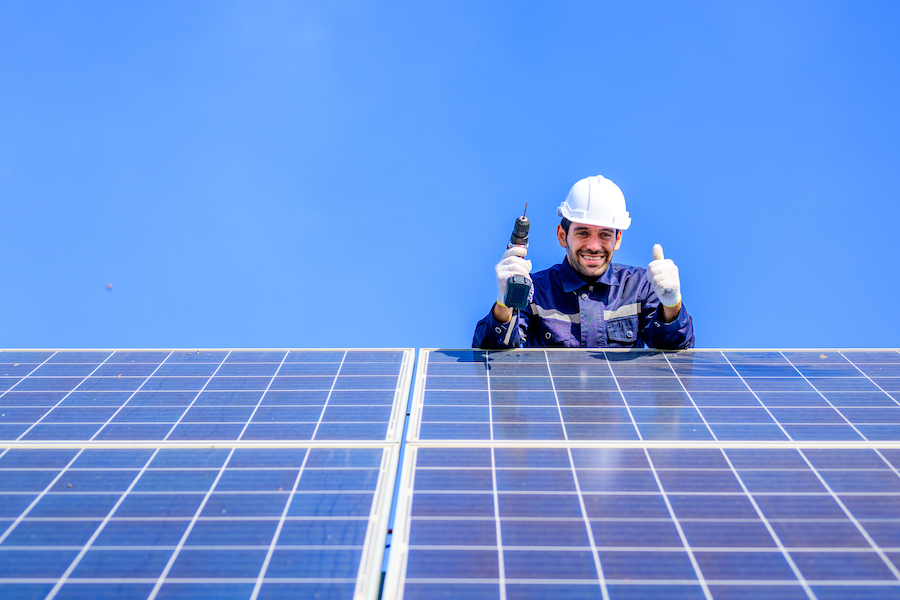
The powerful and abundant solar energy source comes from nuclear fusion in the sun’s center. This relatively stable nuclear fusion provides long-term and reliable energy for many years. As the sun produces about 386 billion megawatts of energy every second, it is no surprise that the primary source of solar energy is the sun itself! As this form of renewable energy is free and plentiful, its widespread adoption has a great potential to significantly reduce electricity production costs and maintain positive impacts on our environment.
How does the solar system work?
The solar system is an incredible example of nature’s power and the marvels it can create given enough time. It does not just provide power to billions of homes across the globe – it is an incredible source of renewable energy and inspiration. To get on board with harnessing this natural strength, Go Solar with the #1 Solar Panel Company and make a contribution to a brighter future for your community and planet. Working together, people can use the sun’s rays to generate electricity from photovoltaic (PV) panels, or use energy from mirrors or lenses to concentrate a large area of sunlight into a small beam which can then be used as thermal energy for heat and electricity generation.
What are the advantages of solar energy?
Solar energy provides us with a renewable energy source, providing an environmentally friendly alternative to conventional sources of electricity. Solar energy is an incredibly versatile energy, suitable for residential and commercial applications. In addition to generating clean energy from the sun’s rays, solar panels can also help reduce your electricity costs in the long term. For example, by harnessing sunlight to provide power for your home or business, you save money on heating, cooling, and lighting your premises which would otherwise need to be supplied by an electricity provider. Solar energy is also more reliable than many other forms of alternative energy, as it is not affected by weather conditions or power cuts. Finally, solar panel installations require minimal maintenance over their lifetime and produce zero carbon emissions – making them an attractive option for individuals and organizations looking to reduce their environmental footprint and dependence on fossil fuels.
How can we protect solar energy?
Proactive steps must be taken to decrease its cost and make it more accessible to the general public to protect solar energy. Governments should offer tax incentives for solar installations and businesses that produce solar-powered goods. Furthermore, more research into new methods of collecting and using solar power must be conducted on a governmental level to improve efficiency. Lastly, regulations should ensure that companies dispose of renewable energy products responsibly, as they can have negative environmental effects if disposed of improperly. By taking these steps, we can work together to ensure that solar energy is safe and secure for future generations.
Is solar energy related to heat?
Solar energy is a type of renewable energy that comes from the sun. It can be harnessed in various ways, such as through solar panels and thermal collectors. However, it may not seem like it initially, but solar energy is related to heat. For instance, when sunlight shines on a photovoltaic panel or any other thermal collector, it is converted into electricity or produces hot water. In addition, the hotter the environment, the more efficient solar panels become. The heat generated by the sun’s radiation can also help warmer air rise faster, making way for wind power as another renewable energy source that relates to heat. Solar energy is closely related to heat and can be used in various ways to produce electricity or provide hot water for household use.

